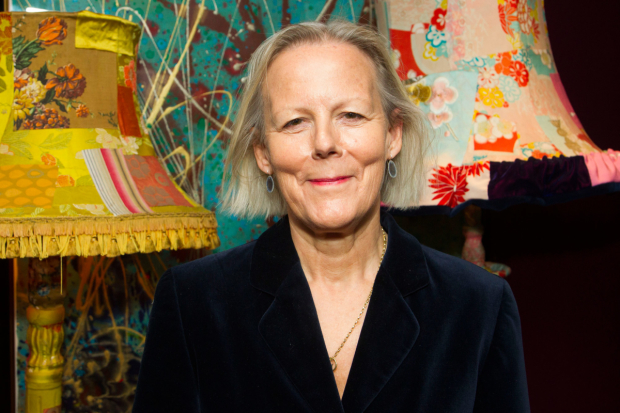Nicholas Serota and the Arts Council need to act to bring about gender equality
As the WOW Women in Creative Industries awards are announced, Sarah Crompton reflects on Phyllida Lloyd’s call to the Arts Council to act

© Dan Wooller for WhatsOnStage
At the WOW Women in Creative Industries awards, director Phyllida Lloyd had her Frances McDormand moment.
Collecting a special award for her and the team responsible for the Donmar all-women Shakespeare Trilogy, she called on Nick Serota and the Arts Council "only to fund organisations that reflect the world around them". To that end, she suggested, they should only give money to groups that had 50/50 male/female representation on stage and off and equal pay for equal work.
I’d been joint chair of the awards with Jude Kelly, artistic director of the Southbank Centre and founder of the Women of the World festivals, and felt very proud of the winners the judges chose for their different contributions to championing women There were awards for Royal Court director Vicky Featherstone, author and journalist Reni Eddo-Lodge, artist Lubaina Himid, artist and activist Lois Weaver, Gal-Dem founder Liv Little, and for Celia Baynes, founder of Community Arts North-West.
"Theatre is the perfect place to model social change," said Phyllida Lloyd in her speech
There were also lifetime achievement awards for choreographer Shobana Jeyasingh, former Virago Books publisher Lennie Goodings and the inspirational and wonderful actress Mona Hammond, who brought the audience to their feet with her appearance.
Jude and I gave a chairs’ award to Lloyd and her team because we felt that the achievement of the Donmar Shakespeare Trilogy which she masterminded and brought to brilliant fruition deserved recognition. I really do think that she changed the idea of Shakespeare casting for ever – and that its social reach, combined with its artistic ambition and achievement, made it a unique and wonderful endeavour. Plus, as Jude pointed out, she directed Mamma Mia! and there is little more life enhancing than that.
In her acceptance speech, Lloyd outlined her belief that "how you make the work is as important as the work that you do". When her team first started the rehearsal process six years ago, she said, she encountered women actors who felt they were only entitled to take up a very small space and felt lucky to have their voices heard at all. They worried about asking for an early departure to see their children, or bringing their dogs and infants to work at the weekend. By the end of the process, they had a room full of dogs, children and empowered women.
"Theatre is the perfect place to model social change," she said. "And if you don’t get it right the first time, you can go away and remodel it."
But her call for institutional change is even more important
It was inspiring stuff. But her call for institutional change –like McDormand’s suggestion that A-list stars use "inclusion riders" to forever alter the constitution of film sets– is even more important. Feminists have always been divided between those who believe that their calls for equality can be won by persistent and patient argument and those who assert that equality and diversity need institutional levers to be pulled before real progress can be made.
It seems to me that one of the results of all the debate that has been generated by the current campaigns for freedom from harrassment and bullying, is a recognition that it will take more than fine words to bring such aspirations about. Women in theatre (and in other industries) do require action on equality. On International Women’s Day, I hope the Arts Council is listening.
















